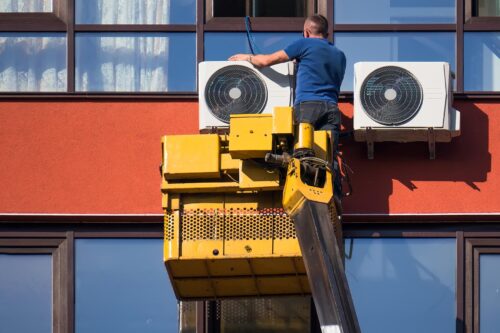
Report | 2023
Energy Service Agreements for Deep Efficiency and Electrification Retrofits of Affordable Multifamily Housing in California
Over half of California’s 3.2 million multifamily units were constructed before energy efficiency standards, resulting in poor performance and high greenhouse gas emissions. To achieve California’s greenhouse gas reduction goals, affordable multifamily housing (AMFH) must improve energy efficiency, reduce carbon emissions, and lower tenant utility bills while enhancing quality of life. Yet AMFH owners face many challenges to improving the performance of their buildings, including:
- the split incentive between owners and tenants (i.e., who accrues the benefits of retrofit utility cost savings?),
- utility allowance and rent restrictions for subsidized housing, and
- financing limitations between low-income housing tax credit recapitalization events, making upfront costs for retrofits difficult to cover, despite state incentives.
This report covers the role certain types of energy service agreements (ESAs), combined with federal incentives, can play in scaling AMFH retrofits, maximizing the impact of the 2022 Inflation Reduction Act in decarbonizing existing buildings.
Energy service companies (ESCOs) offer solutions for solar PV, energy efficiency, and electrification measures; often assume some amount of project performance risk; and provide project financing under an ESA. Certain types of ESAs present a viable solution for solving the split incentive issue, financing mid-cycle AMFH retrofits, and addressing the challenges owners may face covering the upfront costs of comprehensive improvements.
This report is based on interviews with ESCOs and techno-economic analysis that quantifies the potential of ESAs for financing building decarbonization packages.